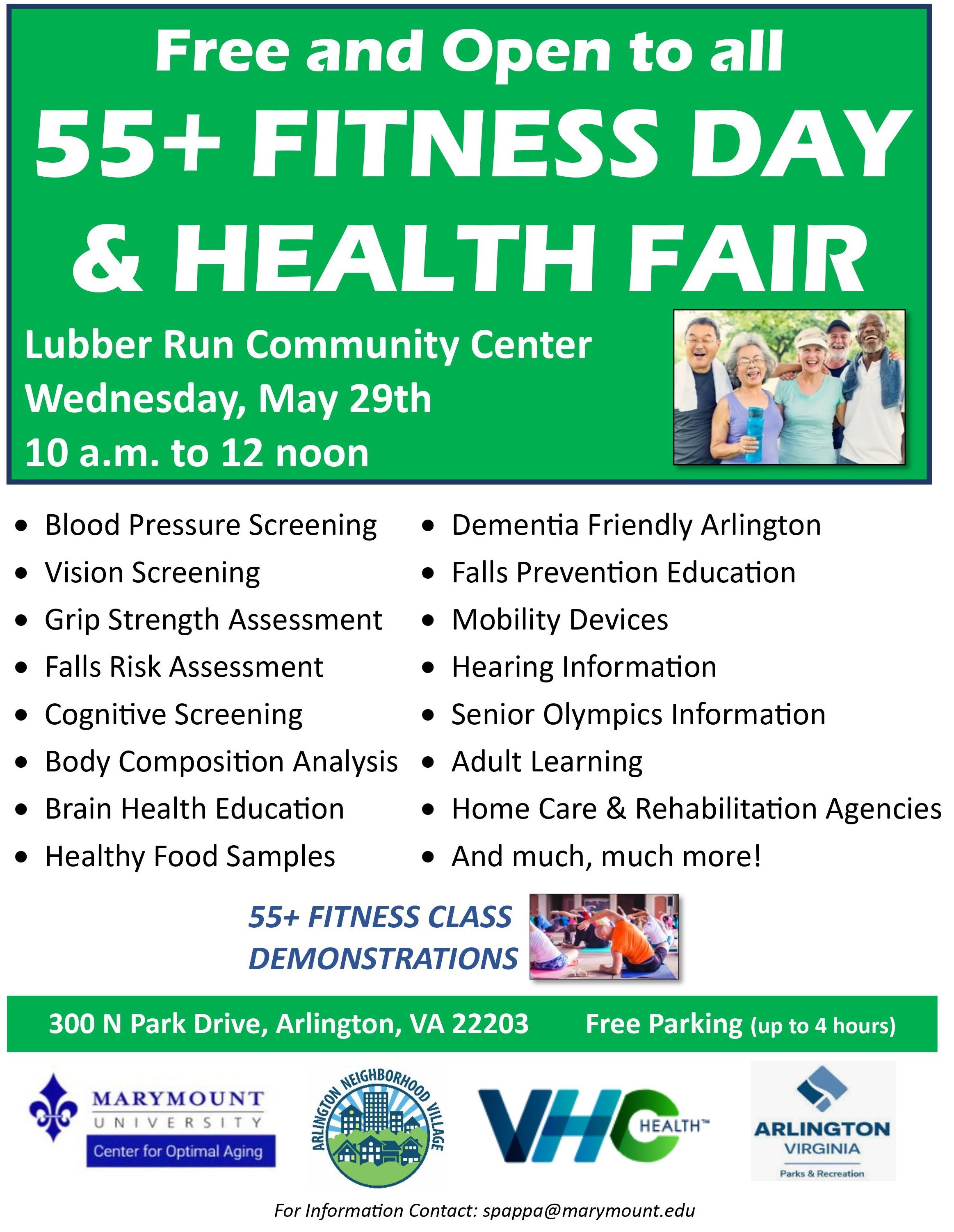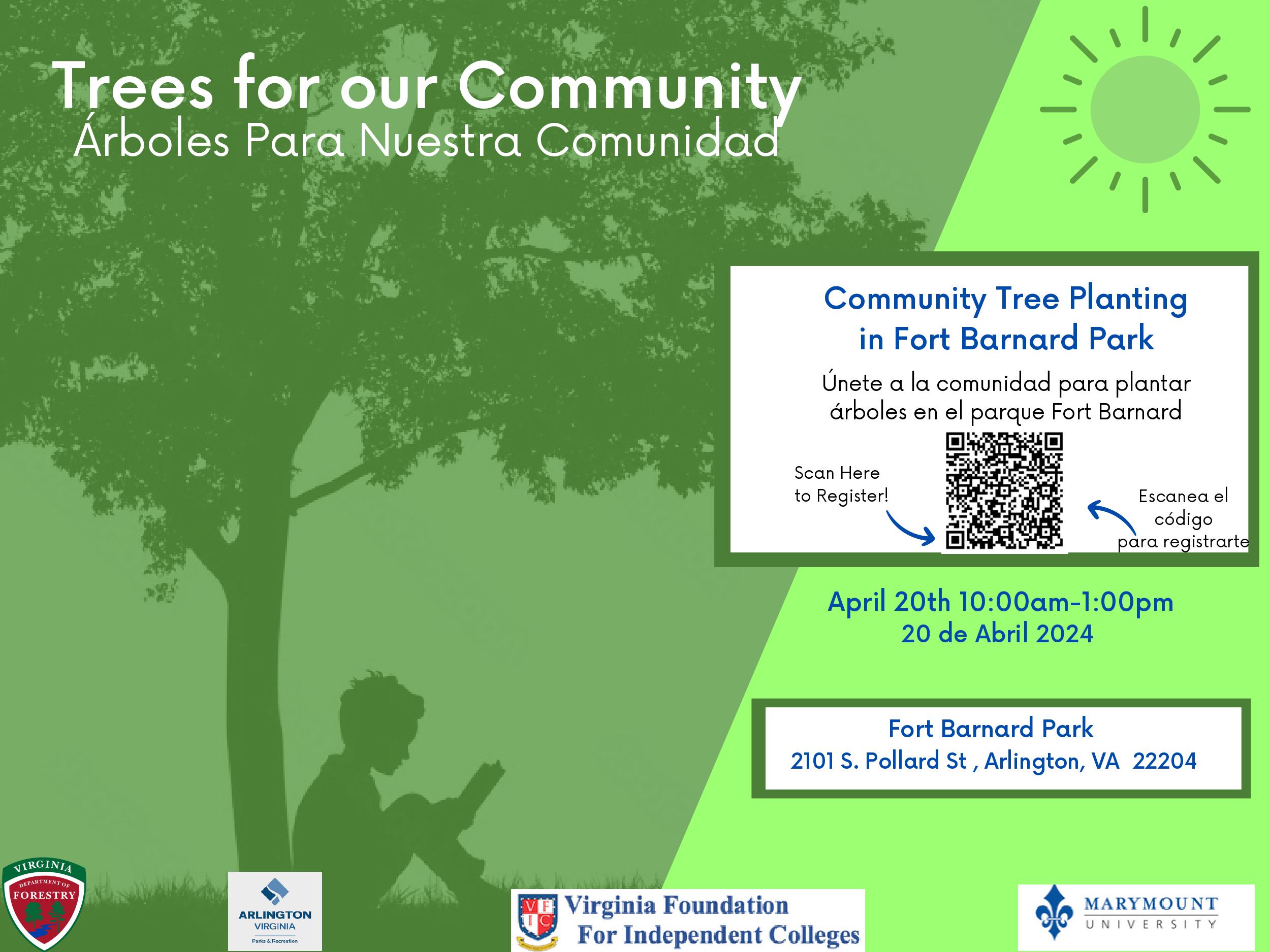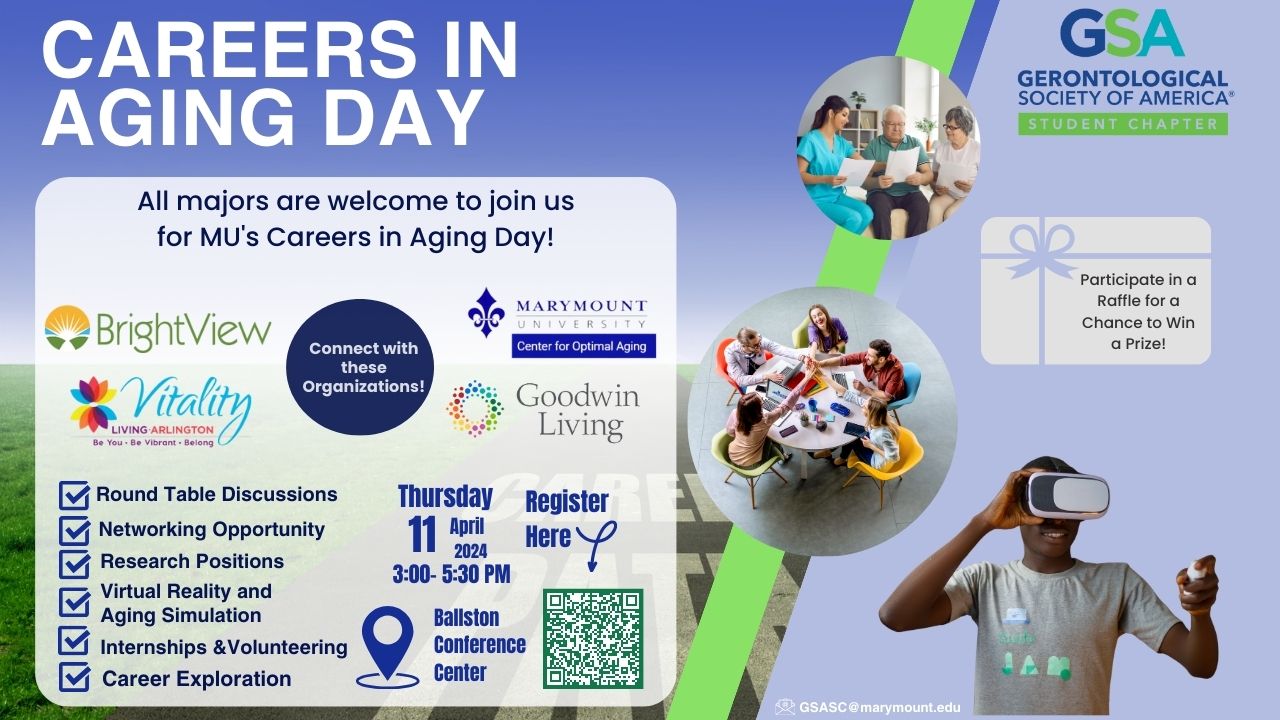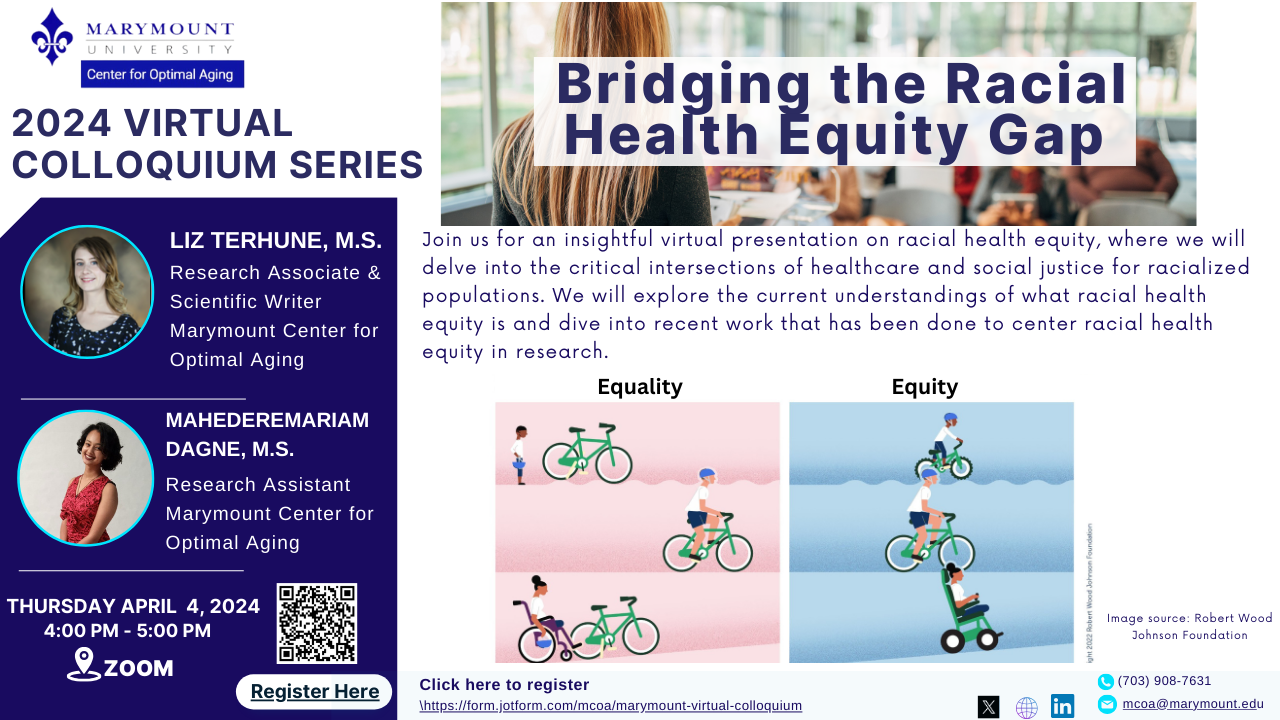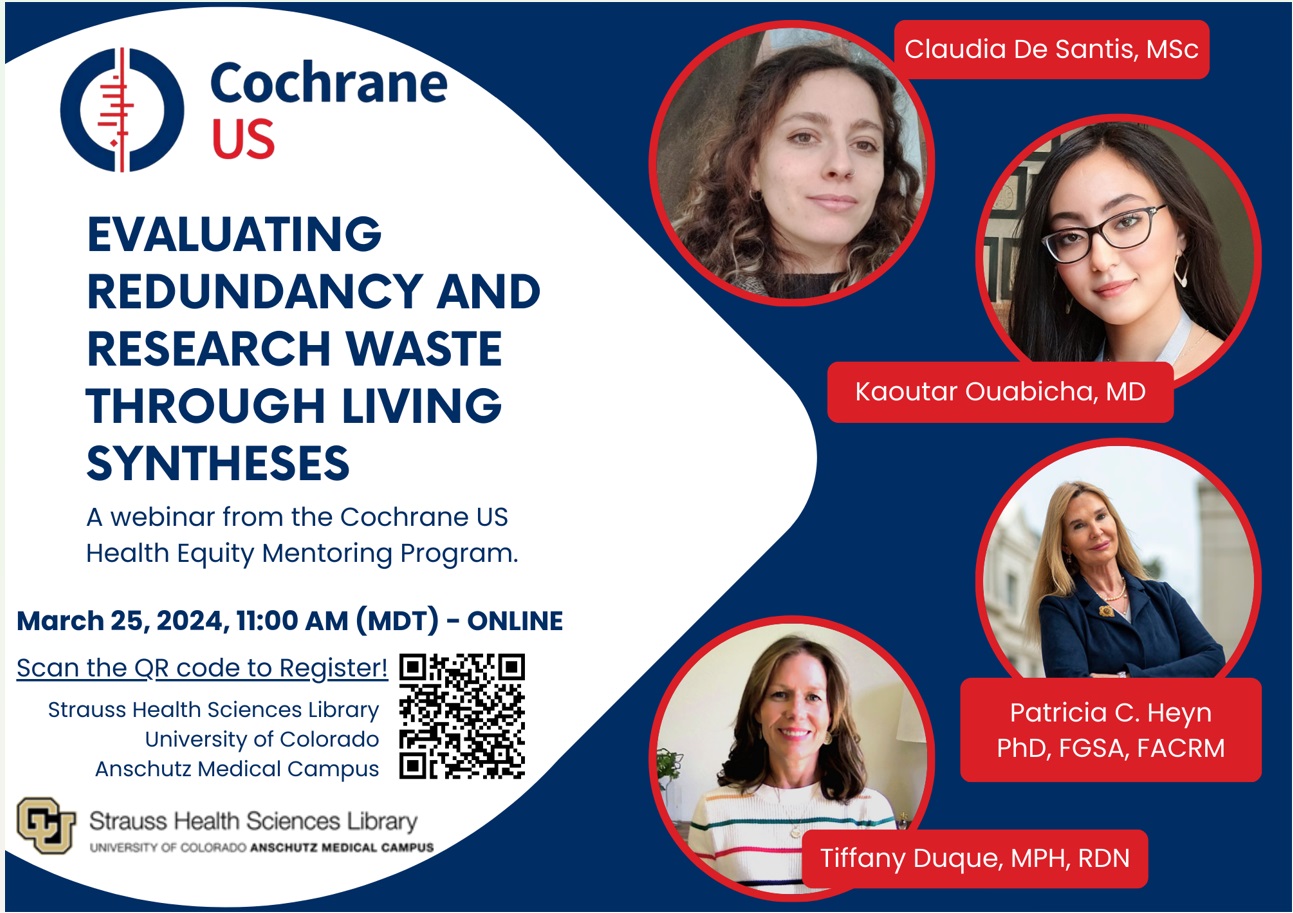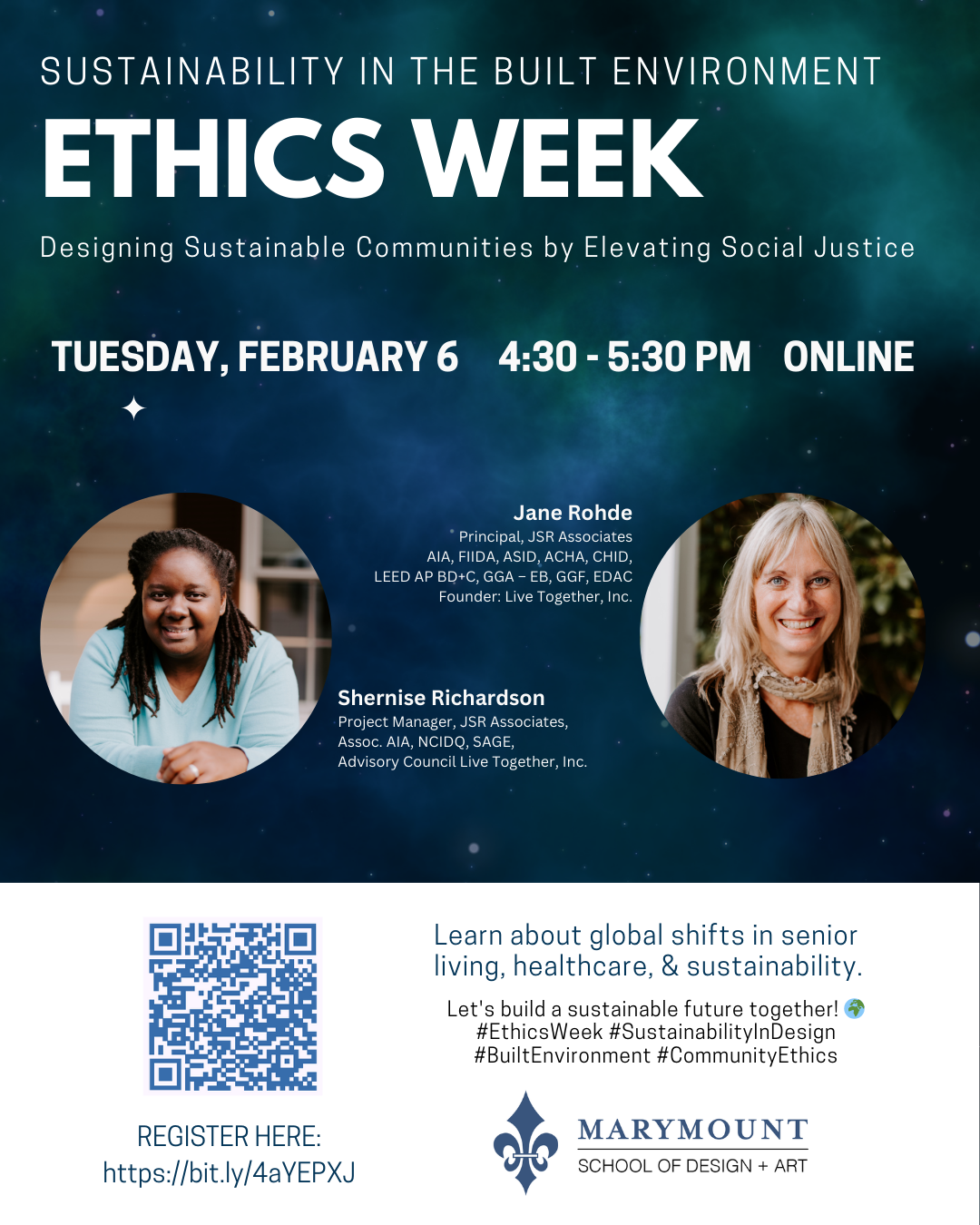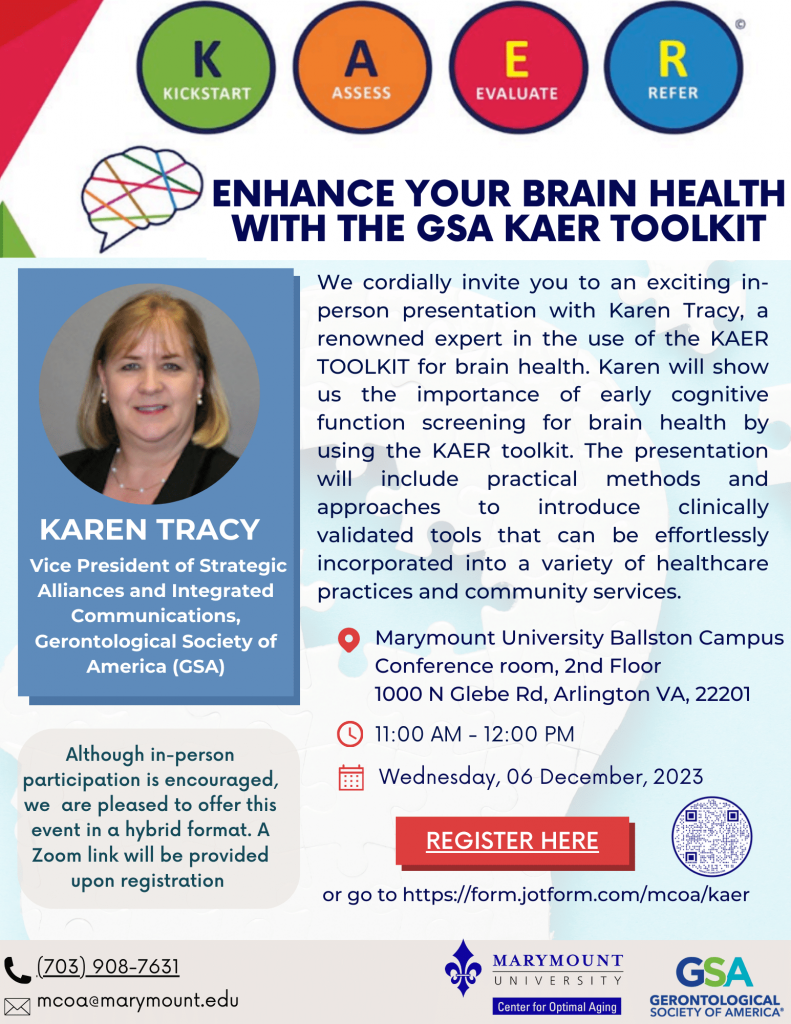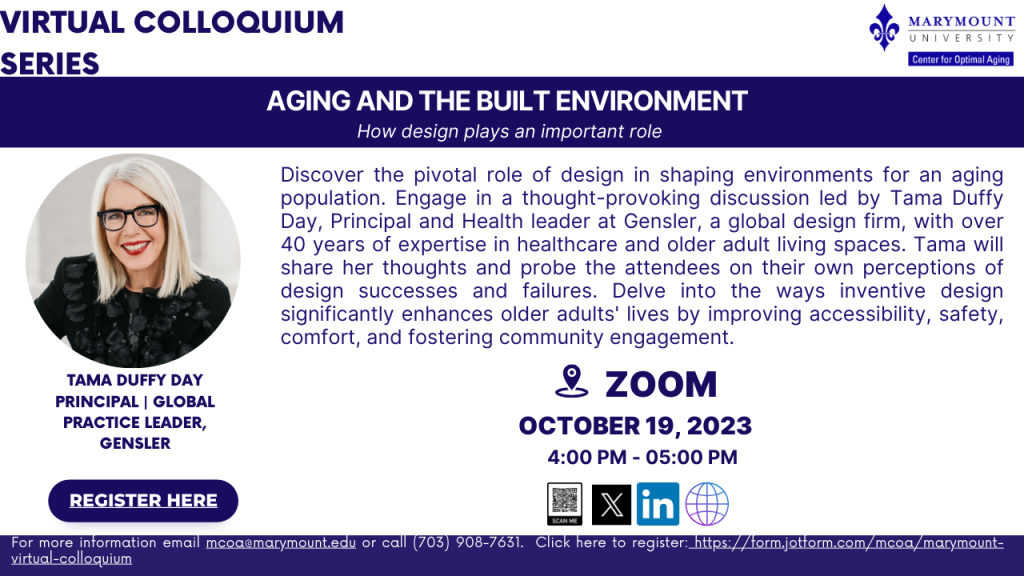MCOA Events and News
Current Events
There are no upcoming events.
Previous Events
55+ FITNESS DAY & HEALTH FAIR
Date: May 29, 2024
Time: 10:00 am - 12:00 pm
Location: Lubber Run Community Center
Center for Optimal Aging | Featured Events | Northern Virginia Fall Prevention
Community Tree Planting in Fort Barnard Park
Date: April 20, 2024
Time: 10:00 am - 1:00 pm
Location: 2101 S. Pollard St., Arlington, VA 22204
Center for Optimal Aging | Featured Events
Careers in Aging Day
Date: April 11, 2024
Time: 3:00 pm - 5:30 pm
Location: 1000 N Glebe Rd, Arlington, VA
Center for Optimal Aging | Educational Activities | Featured Events
2024 Virtual Colloquium Series
Date: April 4, 2024
Time: 4:00 pm - 5:00 pm
Location: Zoom
Center for Optimal Aging | Educational Activities | Featured Events
Evaluating Redundancy and Research Waste Through Living Syntheses
Date: March 25, 2024
Time: 1:00 pm - 2:00 pm
Location: Zoom
Center for Optimal Aging | Educational Activities | Featured Events
Fall Prevention Program and Screening of Saving Claire
Date: February 21, 2024
Time: 1:00 pm - 3:00 pm
Location: Beatley Central Library, 5005 Duke Street
Center for Optimal Aging | Featured Events | Northern Virginia Fall Prevention
Designing Sustainable Communities by Elevating Social Justice
Date: February 6, 2024
Time: 4:30 pm - 5:30 pm
Center for Optimal Aging | Educational Activities | Featured Events
Black Men’s Brain Health Conference
Start date: February 6, 2024
End date: February 7, 2024
All-day event
Location: UNLV Student Union Ballroom / Las Vegas, NV
Center for Optimal Aging | Featured Events
Enhance Your Brain Health with the GSA KAER Toolkit
Date: December 6, 2023
Time: 11:00 am - 12:00 pm
Location: 1000 N Glebe Rd, Arlington, VA
Center for Optimal Aging | Educational Activities | Featured Events
AGING AND THE BUILT ENVIRONMENT
Date: October 19, 2023
Time: 4:00 pm - 5:00 pm
Location: Zoom
Center for Optimal Aging | Featured Events | Virtual Colloquium Series





